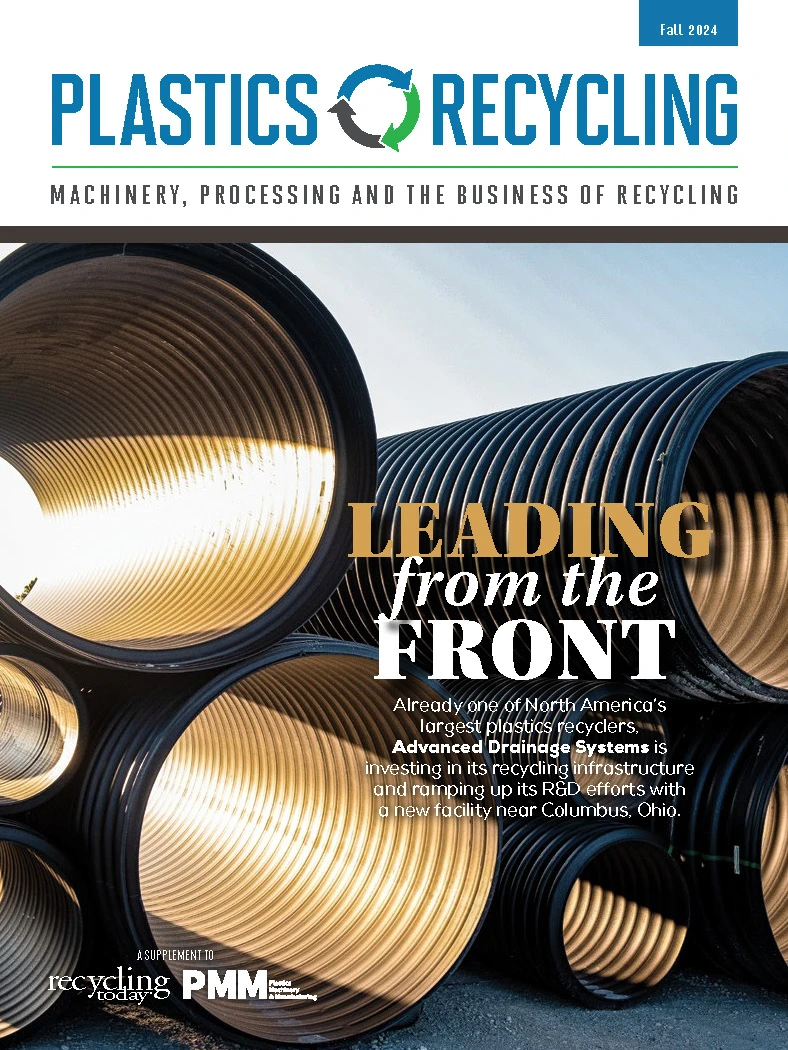LG Chem has developed a flame-retardant plastic made primarily from postconsumer recycled (PCR) materials that it calls sustainable and eco-friendly. The plastic is unique in that it does not include per- and polyfluoroalkyl substances (PFAS).
Overcoming a challenge
LG Chem’s unique process makes the new polycarbonate/acrylonitrile butadiene styrene (PC/ABS) material flame retardant without using PFAS or polyfluorinated substances, which are being phased out globally because of environmental and health concerns.

The chemical company, based in Seoul, South Korea, with North American headquarters in Atlanta, says the material received a V-0 rating in UL 94 testing, the highest rating in flame retardancy for vertically oriented specimens. About 240 specimens of four colors—natural, black, red and white—passed testing to obtain V-0 level flame retardancy, according to LG Chem.
“Each specimen is ignited twice for 10 seconds, and each time the flame must self-extinguish within 10 seconds without dripping any sparks,” LG Chem explains to Plastics Recycling in an email. “The polycarbonate industry has been using a type of PFAS, known as PTFE [polytetrafluoroethylene], to gain V-0 flame retardancy to prevent sparks from dripping when set on fire. Our new product achieves this ‘anti-drip’ effect without the use of PTFE (this is why we claim it is a PFAS-free material).
“Technically, it is very challenging to reach V-0 flame retardancy level without the use of PTFE. We are exhaustively ensuring that PFAS materials—materials that are widely used in many applications—are not contained in pellets that are made out of our new eco-friendly material, which contains 50 percent PCR plastics.”
LG Chem says it is the first company worldwide to obtain V-0 flame retardancy with PFAS-free PC/ABS containing PCR content.
Embracing eco-friendliness
PFAS chemicals commonly are used in cooking utensils, clothing and cosmetics as they are highly flame-resistant and do not dissolve in water and oil. However, as they decompose in nature, they negatively affect the environment, according to the company. The demand for PFAS-free materials is growing, especially in the United States and Europe.
“The transition to eco-friendly materials, including PFAS-free flame-retardant plastics, will become a global trend,” Steven Kim, senior vice president of LG Chem’s Engineering Materials business unit, says in a news release about the new product. “We will continue our research and development efforts to create eco-friendly and flame-retardant materials that prioritize customer well-being and the environment.”
The company adds that including more than 50 percent PCR material reduces carbon emissions by 46 percent compared with using standard PC/ABS materials.
LG says its new PFAS-free flame-retardant material is suitable for use in electrical devices, including laptops and tablets, and industrial equipment, including inverters and electric vehicle chargers.

Explore the Fall 2024 Plastics Recycling Issue
Check out more from this issue and find your next story to read.
Latest from Recycling Today
- BMW Group, Encory launch 'direct recycling’ of batteries
- Loom Carbon, RTI International partner to scale textile recycling technology
- Goodwill Industries of West Michigan, American Glass Mosaics partner to divert glass from landfill
- CARI forms federal advocacy partnership
- Monthly packaging papers shipments down in November
- STEEL Act aims to enhance trade enforcement to prevent dumping of steel in the US
- San Francisco schools introduce compostable lunch trays
- Aduro graduates from Shell GameChanger program





